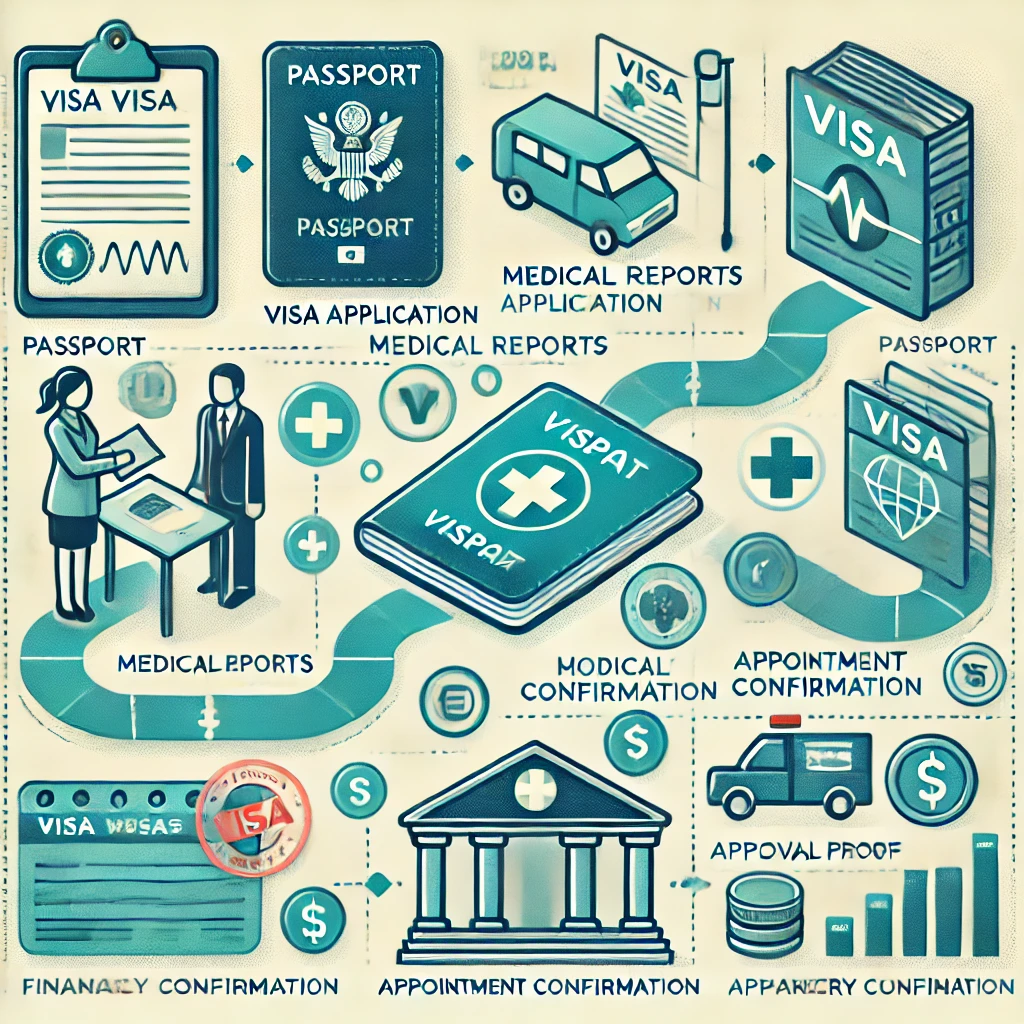Medical Visa
A medical visa enables patients, along with their family members or caregivers, to travel overseas to have access to medical services that may not be readily available in their home country or need specialized expertise. This is a unique visa type issued to individuals seeking medical treatment or care abroad. Countries around the world grant medical visas with specific procedures and requirements to make sure the authenticity of the treatment and conformity with their immigration regulations.
Here, we will explore all that you need to know related to medical visas, including application processes, requirements, eligibility and the benefits of obtaining one.

Types of Medical Visas
- Medical Tourist Visa: In some countries, this visa enables people to combine tourism with medical treatment. Patients along with their families can visit for medical purposes while also exploring the destination country.
- Standard Medical Visa: This visa is granted to individuals traveling to receive treatments like cancer therapies, surgeries or long-term medical care.
- Medical Attendant Visa: This visa is for a caregiver, family member or spouse accompanying the patient to help with their medical needs during their period of stay.
Purpose of a Medical Visa
There are many reasons why people seek medical visas; however, the main purpose of a medical visa is to ensure travel for patients needing medical care overseas. Mentioned below are some common reasons why medical visas are applied for:
- Surgical Procedures: Patients who require specialized surgeries may seek a medical visa to access top surgeons and healthcare facilities abroad.
- Specialized Medical Care: Patients may need access to treatments or healthcare technologies not available in their home country.
- Expert Consultation: Some individuals travel for consultations or second opinions with renowned hospitals or leading healthcare experts.
- Access to Advanced Treatments: A medical visa allows patients to get cutting-edge treatments, especially for conditions not treatable in their local healthcare system.
Who Can Apply for a Medical Visa?
The main aspirants for medical visas are those in dire need of medical treatment overseas. However, the eligibility criteria and process differ between countries. The mentioned below are some groups can ideally apply for a medical visa:
- People seeking some sort of Medical Consultation: Countries may allow medical visas for persons traveling to seek a consultation or second opinion from institutions or healthcare experts abroad.
- Patients Seeking Medical Treatment: People in the need of treatments or specialized care for rare conditions, complex medical procedures or major surgeries abroad.
- Accompanying Family Members or Caregivers: Some countries allow patients to bring along caregivers, family members, or spouses to assist them during the period of medical treatment.
Key Requirements for a Medical Visa
To be eligible for a medical visa, all those applying must meet specific requirements, which differ by destination country. Usually, the following criteria and documents are required:
- Medical Report: A detailed medical report from a recognized healthcare provider in the home country is needed along with the clear justification outlining the patient’s condition, recommended treatments, and why overseas medical care is required and whether or not the same treatment is available in the home country is judged thoroughly.
- Confirmation of Admission: A letter confirming that the patient is accepted at the medical centre of the destination country for treatment and the letter must state the treatment planned and also the steps involved. The time that the treatment will take to be accomplished should also be mentioned keeping a note of immigration regulations that follow the medical visa allowance.
- Financial Documents: The documents are required that can back the economical condition of the applicants alongwith the family members accompanying the patient. They should illustrate that the applicant is financially strong enough to take up the costs involved in the entire treatment and all other expenses during the period of stay in the country of treatment. In some cases, sponsorship letters may also be required.
- Travel Insurance: Some countries may ask travelers to have medical insurance that bridges treatment expenses and any other emergencies during the period of stay.
- Valid Passport: The patient and individuals accompanying mandatorily need to have a passport valid for at least six months after the intended arrival date in the destined country.
- Visa Application Form: Personal details, medical history, and travel plans should be included in the medical visa application form.
- Visa Fees: The cost of applying is to be paid which can be different as per the country and the visa type.

